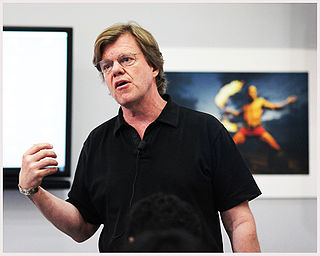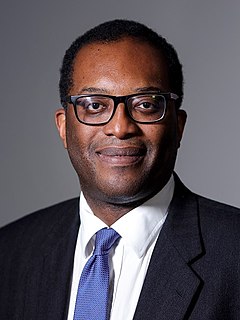Top 1200 Google Quotes & Sayings - Page 18
Explore popular Google quotes.
Last updated on April 20, 2025.
Seems Google management figured out it is cheaper, happier and more productive to take care of their employees and create a positive work environment than to burn them to a crisp, make them afraid of the future, and send them off into the highways and byways of California in search of a Taco Bell for lunch.
I had to really learn what it meant to be on a set and what the expectations were and what producers are. I had to learn who I'm talking to and what their functions are. I had a couple of gaffes: I would ask a person a question, and it wasn't their job. I had to Google their job description. That was the first big adjustment.
If you were asked to go on 'Mastermind,' what would your specialist subject be? I wouldn't have a clue what I could answer questions on. Birmingham City Football Club would be a start, I suppose, but with a hundred odd years of history, thousands of matches, players and incidents to recall, even access to Google would leave me struggling.
Alternative services would mean that there would be services available to compete with Google, Facebook, Amazon, Dropbox, Skype, etc., and they would be run by companies not based in the U.S.A. The rest of the world has simply failed in being able to compete with them, and we really should be doing better here.
I did a tweet about LGBTQ+ and someone was saying 'what's the + and what's the Q?' and some people would be like 'you should educate yourself it's disgusting, google it.' If I asked the question, they would answer it to me, so just try and treat people in the way I expect to be treated myself. So I do think that's been a problem in our community.
Despite the metadata attached to each tweet, and despite trails of retweets and 'favorite' tweets, the Twitter corpus lacks the latticework of hyperlinks that makes Google's algorithms so potent. Twitter's famous hashtags - #sandyhook or #fiscalcliff or #girls - are the crudest sort of signposts, not much help for smart searching.
The White House New Media team circulates multiple highlights each day of what people are looking for online - Twitter trending topics, popular Google searches, etc. - and it gives us a sense of what's breaking through, what isn't, and a sanity check for what the larger online population cares about at any given time.
This is a world that's big enough for everyone. I like that message in that comes out of John Lasseter, and it comes out Pixar, it comes out of the Apple, Google, the Ben and Jerry's thing. These are American companies that send that message around that is good, that is healthy. And everyone goes, "That's the America I always believed in before Watergate."
Arthur Jay Klinghoffer, a professor of political science at Rutgers University, has argued that geography seems less relevant than ever in a world where nonstate actors -- malleable entities like ethnicities, for example -- are as powerful and important as the ones with governments and borders. Where on a map can you point to al-Qaeda? Or Google, or Wal-Mart? Everywhere and nowhere.
Technology has just been the major progression of the last 15 years - instant communication. That stuff has gone so global. That's what's interesting about it. When someone sits down in front of a computer, it's the same everywhere in the world, and it's the same screen looking back at you with the same Google, and there's no individuality to it. So I decided it would be kind of visually uninteresting to have in my films.
If you invest in Microsoft or Oracle, or a number of other companies for that matter, you're fundamentally making a bet that there's going to be no innovation. So an investment in Microsoft is a bet that the operating system is going to stay the same, it won't be replaced by Linux, Google Docs, or a mobile platform like iOS or Android.
When I was in college, I remember thinking to myself, this internet thing is awesome because you can look up anything you want, you can read news, you can download music, you can watch movies, you can find information on Google, you can get reference material on Wikipedia, except the thing that is most important to humans, which is other people, was not there.
I remember debating the finer points of flaky pastry with my chicken-pot-pie-obsessed American dad. I remember the divine mix of Thai food, TV dinners, and hearty, homemade goodness that have shaped this palate of mine to this day. I remember all this, but I still Google my husband's birthday. Thank God he's famous.
Libraries are at a cultural crossroads. Some proffer that libraries as we know them may go away altogether, ironic victims of the information age where Google has subverted Dewey decimal and researchers can access anything on a handheld device. Who needs to venture deep into the stacks when answers are but a click away?
The idea that, in the age of Google, Facebook and the internet, government can control the 'commanding heights' of the economy is one of the great delusions of our age. Modern techonology, social media, the explosion of online retail, among many other things, have meant that governments have less and less control.
The similarity is that concentration of capital influences virtually everything that goes on. It influences the way the media functions, it very powerfully influences how the government works and it of course influences corporate sector elements, like say how Google or Amazon present materials that reach the public.
You don't have to work for Google, or any of the other firms encouraging staff to pursue personal projects on company time, to use slowness to unlock your creativity. Anyone can do it. Start by clearing space in your schedule for rest, daydreaming and serendipity. Take breaks away from your desk, especially when you get stuck on a problem.
First there's my role just as an executive being responsible for advertising, regardless of gender. I think that's a position that I take seriously. That's the first role. But I think for my role as a woman at Google, you try to set a good example and be a role model for the other women in the organization.
Google will be obliged either to accept Chinese regulations or exit the world's largest Internet market, with serious consequences for its long-term global ambitions. This is a metaphor for our times: America's most dynamic company cannot take on the Chinese government - even on an issue like free and open information - and win.
Booksellers are tied to publishing - they need conventional publishing models to continue - but for those companies, that's not the case. Amazon is an infrastructure company; Apple sells hardware; Google is really an advertising company. You can't afford as a publisher to have those companies control your route to market.
There have been women who stumbled across Feministing randomly, through a bizarre Google search or something, and had no idea what feminism was. They thought it was something older women do, or bought into the hairy bra-burning man-hating stereotype 100 percent. Anything that deviates from that is very exciting for them.
Have you ever noticed the fact that once you begin to think about something, you see it everywhere? Anyone who has ever begun the search for a new automobile can attest, from the moment you Google it, you begin to pass that model in traffic everywhere. Of course, they were there the whole time; we simply didn't have them at top of mind.
You have to be willing to spend an awful lot in that R&D phase before you see the benefits. When you look at the companies that have really won customers over in technology - say, Apple and Google - you find that they spend billions of dollars on R&D each year, often spending that much on a product before they ever make a dime back in profits.
There's been a lot companies that have shown "zero to one" kind of growth in the computer, internet software age. Facebook and Google are zero to one companies. Apple's iPhone was the first smartphone that really works, and of course, then you scale it horizontally, but the vertical component was really critical. Space X would also be one.
We've already seen shifts happening in some of the big companies - Google, Apple - that now understand how vulnerable their customer data is, and that if it's vulnerable, then their business is, too, and so you see a beefing up of encryption technologies. At the same time, no programs have been dismantled at the governmental level, despite international pressure.
What's so bad about Google knowing I need Kleenex? Look at it in the aggregate - see how information... can be used to target people based on their profiles and change the course of human history, as I believe it is already beginning to do. This knowledge that I need Kleenex has bigger complications than just needing Kleenex.
People ask me what my predictions are for publishing and how digital is changing things and I tell them my only real prediction is that is it's all changing. Amazon, Google and all of those things probably aren't the enemy. The enemy right now is simply refusing to understand that the world is changing.
The thing that really struck me was how many firms that we think of as strictly civilian had ties to the Pentagon. Companies like Apple, Starbucks, Oakley the sunglasses manufacturer. Even Google, and a lot of big corporations like PepsiCo, Colgate-Palmolive, and Nestle, that you don't normally think of as defense contractors.























































